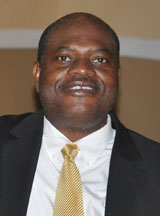|
From:TheBahamasWeekly.com Columns The agreement between the government of The Bahamas and Wallace Groves was signed on the 4th of August 1955 and by all accounts, the Freeport experiment was a qualified success. Built on Pine Barren, by all accounts, Freeport is a modern and well designed city. The name Freeport was derived from the guaranteed long term tax concessions and benefits for financial, commercial and industrial enterprises by port licensees within this one of a kind economic free trade zone. At that time the advantages offered were superior to any being offered in the region. The 1955 Act specifically stated that “no real property or rates and no real property levies (whether capital or periodic) of any kind shall be levied, charged or collected by the Government within the Port Area or upon or against any land building or structure within the Port Area.” Additionally, “no personal property taxes or rates and no capital levies and no taxes on capital gains or capital appreciation shall be levied, charged or collected by the Government. No taxes of any kind shall be levied upon or against the earnings of the Grand Bahama Port Authority or against the earnings of a Licensee in the Port Area and outside the Colony.” The initial vision and business model called for Freeport to be a major shipping hub, taking advantage of its proximity to the North and South American shipping lanes, and an international business center. Under the 1955 Hawksbill Creek Agreement, the Grand Bahama Port Authority established the infrastructure for World Standard Services and Facilities. The city thrived under the 1955 tax regime and business model but was subject to the radically changing social order that was sweeping across North America and the Caribbean. This social revolution engulfed The Bahamas as it came into its own by bringing all citizens on the periphery of Bahamian society well into the Bahamian mainstream, both socially and economically; this public policy remains a work in progress. Today, Freeport continues to offer an exceptional business climate for both domestic and foreign direct investment in the aftermath of Hurricanes Frances, Jeane and Wilma one decade ago that caused extensive infrastructural damage; the legal disputes between and the deaths of both of its principals, Sir Edward Saint George and Sir Jack Hayward; the extensions of tax concessions to east and west Grand Bahama beyond the port area; and the ongoing negotiations between the government and relevant stakeholders on the future of the tax concessions enjoyed by port licensees for sixty years. On Wednesday 29th July 2015, the Parliament of The Bahamas extended the tax provisions for another six months to allow for a more in depth analysis of the local economy and to finalize a strategic economic plan for the island going forward. On Freeport’s sixtieth birthday, the voices of Grand Bahamians were heard on this decidedly successful commercial experiment, its growth and development over the years, and its promising future. The recurrent themes were the lack of economic activity and job opportunities, especially for our youth. “I believe that the magic has gone out of Freeport; the drive that the movers and shakers had for Freeport died now…I guess it died with the person who was in charge and when they died the vision died as well” said one resident. “For the last twenty years Freeport has gone totally down. Since the storms, there was no type of replenishment for Freeport” said another Freeport resident. “Some people doing okay; some people doing bad so I guess it depends on what you into” was another observation. “Freeport right now…the state it in, you could see it, it picking up slowly but what needs to really happen right now we need more…basically for the youth more job opportunities” was yet another view. One lady felt strongly about opening the former Princess Towers and Princess Country Club: One observer believed the principals made a strategic error in developing Freeport. He commented on the structure and function of the Freeport model. “The successful business model created by Wallace Groves was transformed by the Hayward/St George shareholders, who determined that assets critical to the operation of a “Freeport” were to be either partially or completely sold off to outside interests. Under new management those entities became profit centers, thereby increasing operational costs - a disincentive to potential investors; the power company, the Freeport Harbour Company, the airport company and the Grand Bahama Development Company (are just a few examples).” The complaints about high airport landing fees, the high cost of aviation fuel and the absence of a modern airport post Hurricane Wilma have reached the highest levels of government and will no doubt figure prominently in the current negotiations. We thank the observers for their frankness and brutal honesty. In the end we congratulate Freeport on its sixtieth birthday and Bahamians remain optimistic and hopeful of its return to its lofty perch as the “MAGIC CITY.”
|
 The vision of developer Wallace Groves that gave birth to an economic zone on Grand Bahama that would come to be called the Magic City, Freeport, the industrial capital of The Bahamas, legally enabled by the Hawksbill Creek Agreement, turned 60 this week.
The vision of developer Wallace Groves that gave birth to an economic zone on Grand Bahama that would come to be called the Magic City, Freeport, the industrial capital of The Bahamas, legally enabled by the Hawksbill Creek Agreement, turned 60 this week.